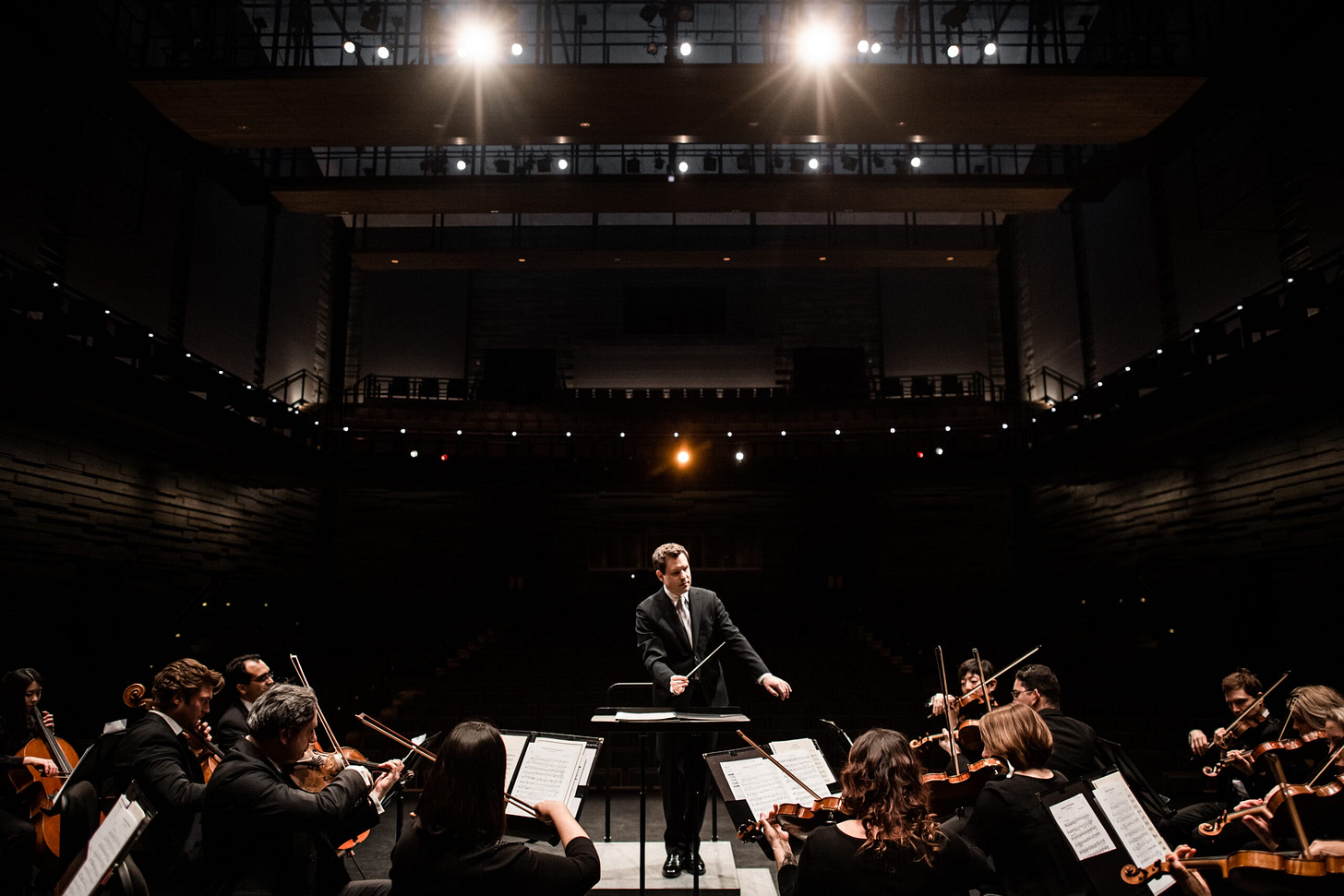
I wish I liked classical music more. I consider it a flaw in myself, not the music, but I confess it’s just never my first choice of things to listen to. I’ve found other forms of high art to be like coffee or wine—you have to cultivate a love of them at first, but then you start to seek them out of your own accord. They become some of life’s richest and most exquisitely varied pleasures. I’m sure this is also true of the great choral and orchestral masterworks, but somehow the activation energy required to love them has been too high for me so far.
Part of it is because you can’t really listen to classical pieces in the way we most often listen to music now—in the background, while driving or making dinner. You have to treat it like a movie in a theater to get the full blast of it: park your butt, turn off your phone, and follow the complex train of emotional gestures that something like a symphony conveys.
Then there’s the setting. Goethe’s friend Johann Eckermann recalled him saying that “architecture is frozen music,” and others have concluded that the converse is also true: “music is liquid architecture.” The ornate archways of a concert hall are designed to match the sweeping landscape of tone and feeling represented in the orchestra, which is designed to match the vaulting unseen structure of the human soul itself. You need a good hall and a good symphony.
Still, sometimes the stars align and you meet the right piece of music when you’re simply ready to receive it. I do have a particular piece in mind, but also a book to recommend if, like me, you feel embarrassed about your ignorance on the subject.




